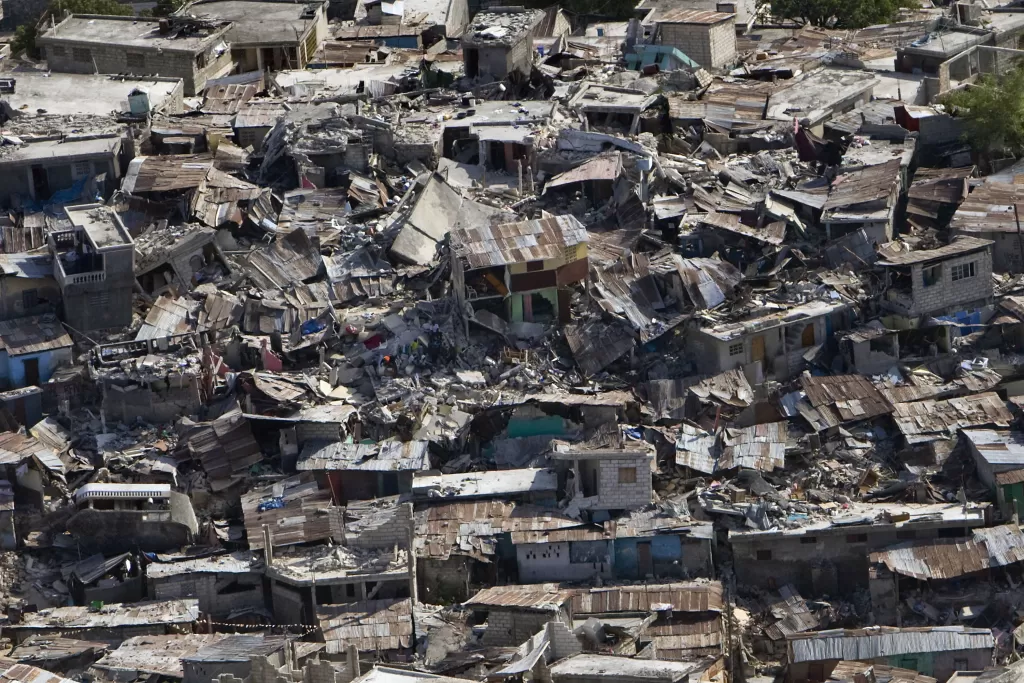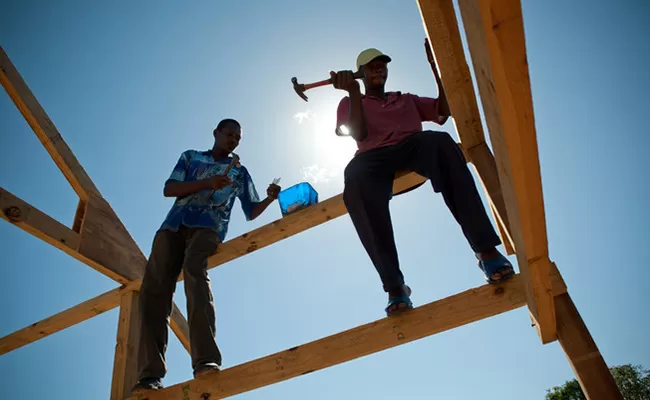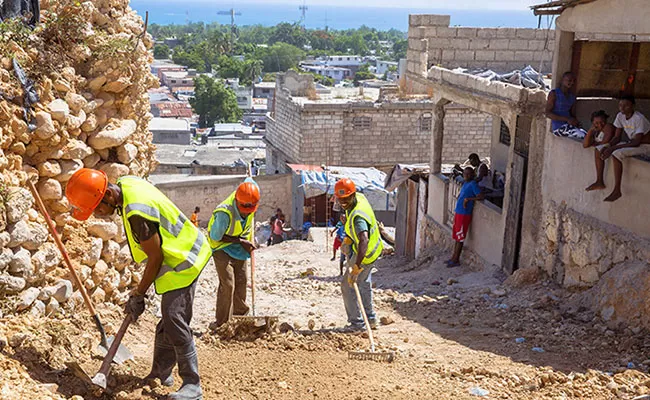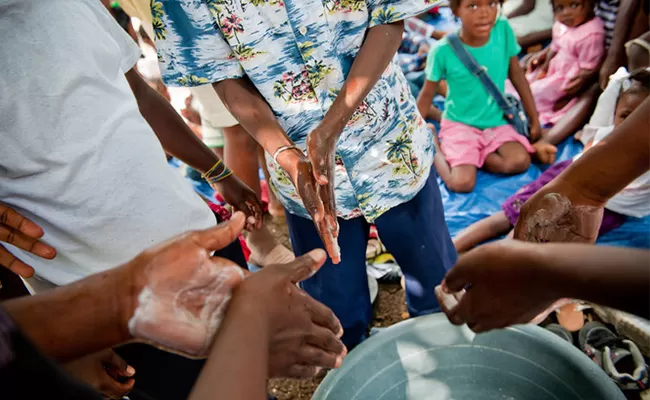Reports
Read more about how funds were spent to help people affected by this disaster

Damage to a neighbourhood of Port-au-Prince following the 2010 earthquake. Image: UN Photo/Logan Abassi

raised for this appeal

people reached with humanitarian assistance

Builders at work on a Tearfund project in Haiti. Image: Richard Hanson/Tearfund

DEC funds helped to clear rubble and rebuild houses to be stronger and more resilient to future earthquakes. Image: Evelyn Hockstein/CARE

DEC charities helped battle a cholera outbreak that claimed thousands of lives following the earthquake. Image: Richard Hanson/Tearfund
Read more about how funds were spent to help people affected by this disaster